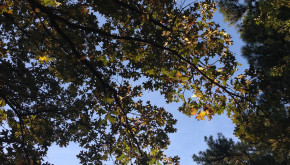
A guest post by Deborah B. Hill, Extension Professor at the University of Kentucky.
Many of you probably have heard the word “permaculture.” My personal definition is "an holistic land use management system focused on sustainable food production," but that can be a bit cumbersome.
The term was coined in the 1970s by an Australian field biologist named Bill Mollison. He was an astute observer of nature and natural systems, and wondered why we couldn’t produce food in a more integrated, interactive and sustainable way. He decided upon the term “permaculture” to indicate the combination of the words “permanent” and “agriculture” and also “permanent” and “culture” – he comments that there is no culture without agriculture. Mollison also stated that permaculture is not just something one does, it’s a whole attitude and way of life – a philosophy. He identifies three “ethics” of permaculture.
The first ethic is care of the earth. This is the only planet we have and its natural resources are finite. It is important for us, as the creatures that have the greatest impact on those natural resources, to behave in a way that nurtures and strengthens the ability of this earth to support us. Conversely, it is important for us not to damage natural systems by our activities.
The second ethic is care of people. Meeting people’s basic needs of food, water and shelter is necessary so that they can be productive in their work and other activities. However, it is important to address and meet these needs without damaging the earth.
The third ethic is accepting limits to population and consumption. It is important for us to realize that the human species cannot continue to increase and sustain a healthy planet. We must put limits on our own growth and consumption. Doing this is sometimes phrased as "share the surplus and invest in the first two ethical principles". As we limit our consumption of goods and services and reduce our global population, existing resources are more available for us to care for the earth and for ourselves and each other.
Look for future posts from Deborah B. Hill about implementing permaculture on your forest farm. You can reach Deborah at [email protected].

